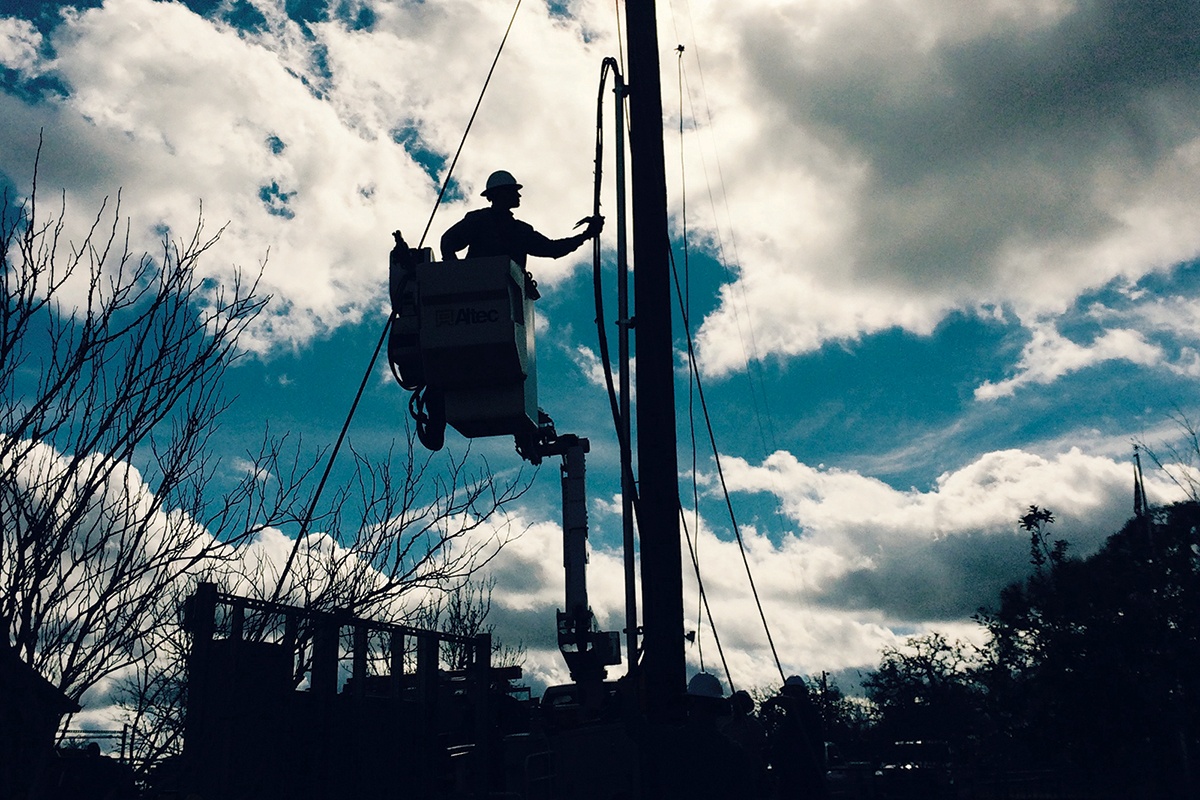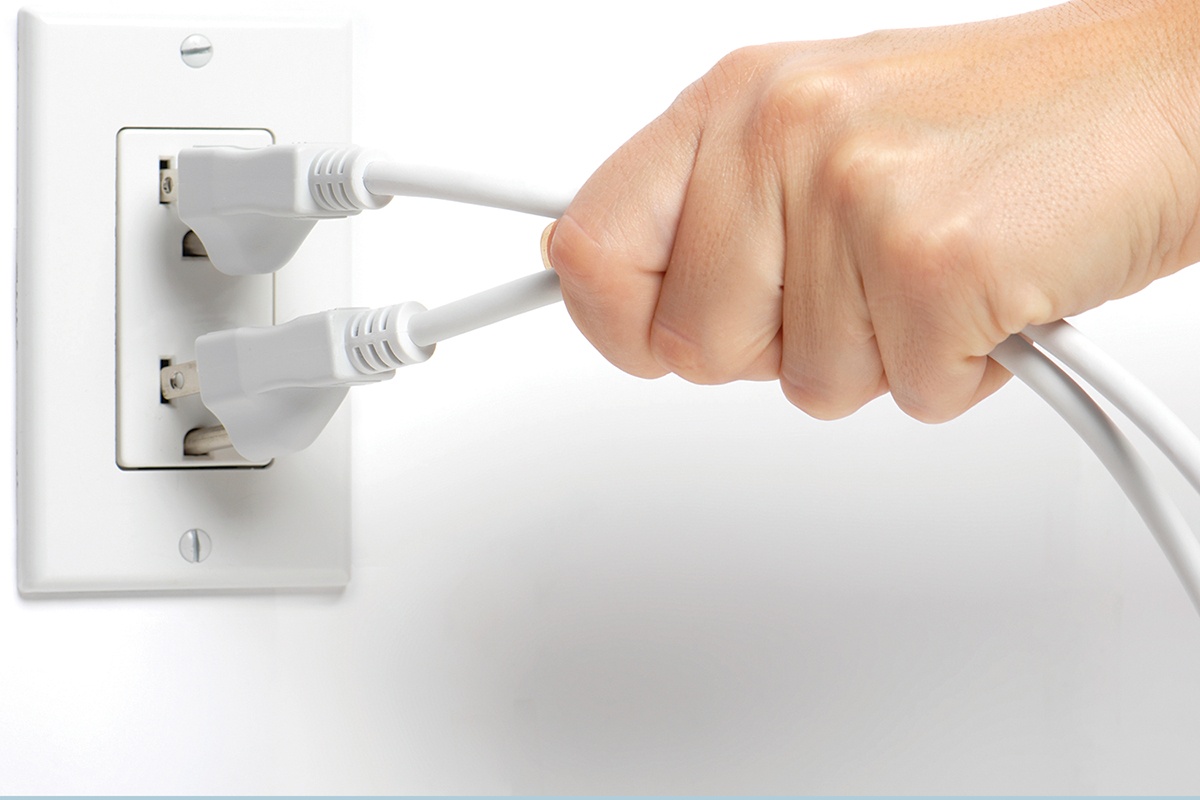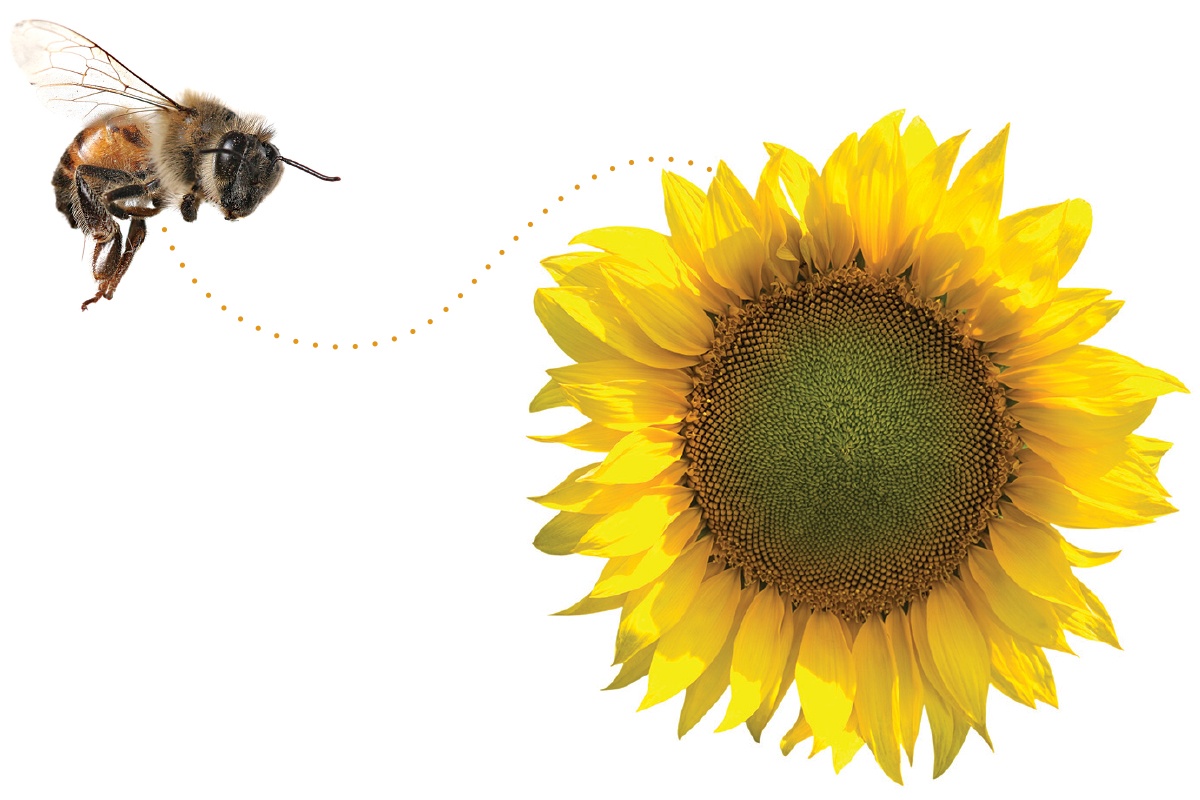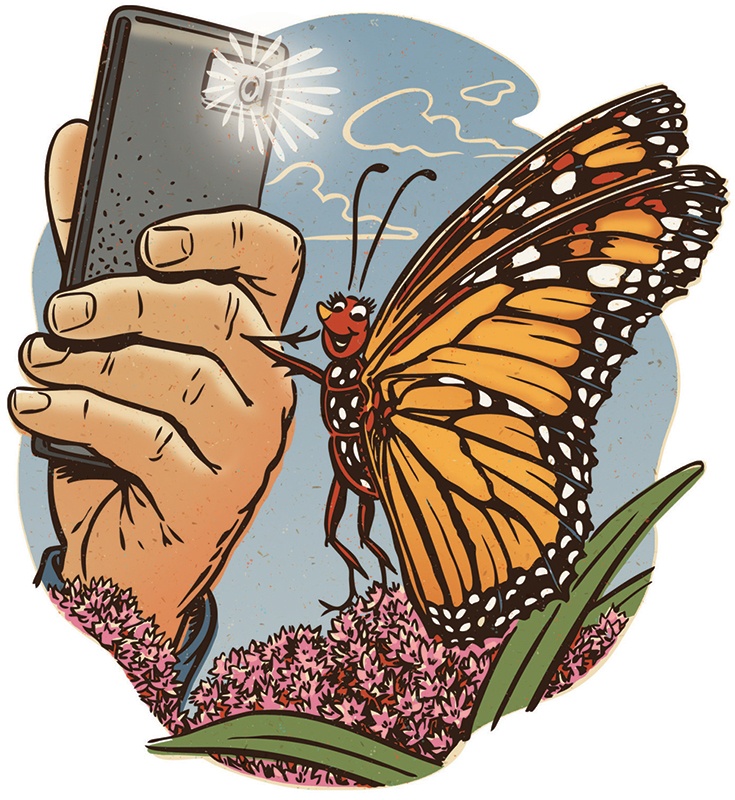Lineman Appreciation Day, April 13 this year, is set aside to recognize the workers who keep the lights on. Staying safe around electricity should be an everyday occurrence and should start at a young age. And check out the app that might help the monarch butterfly population.
Lineman Appreciation Day
On National Lineman Appreciation Day, April 13, co-ops and their members recognize the men and women who keep the lights on. In December, the National Rural Electric Cooperative Association designated the second Monday of April each year for this purpose.
“It gives us a rallying point for our linemen,” says Kerry Kelton, the NRECA’s Texas director and Mid-South Synergy CEO.
The text of the resolution, which the board adopted unanimously, includes: “Whereas linemen leave their families and put their lives on the line every day to keep the power on; whereas linemen work 365 days a year under dangerous conditions to build, maintain and repair the electric infrastructure; whereas linemen are the first responders of the electric cooperative family, getting power back on and making things safe for all after storms and accidents; and whereas there would be no electric cooperatives without the brave men and women who comprise our corps of linemen; therefore be it resolved that NRECA recognize the second Monday of April of each year as National Lineman Appreciation Day.”
Five Rules for Kids and Electrical Safety
Touchstone Energy and Kids EnergyZone.com offer five important lessons to share with youngsters to help them stay safe around electricity.
“Teaching electrical safety from the very earliest of ages ensures a healthy respect of this resource to help prevent accidents and injuries,” says Debbie Robinson, CEO and general manager of Wood County Electric Cooperative. “Resources like Kids Energy Zone make learning fun and drive home lifesaving points.”
1. Always ask a grown-up for help when you need to use something that uses electricity.
2. Don’t yank or pull electric cords from a wall. Pulling cords can damage the outlet, appliances or plug.
3. Never overload outlets with too many plugs.
4. Keep electrical stuff away from water. Water and electricity don’t mix. Most electrical accidents in the home happen when people use electricity near water.
5. Watch out for power lines. Never touch a power line, especially if there is one that has fallen down.
Texans Can Help Track Milkweed
The Texas Parks and Wildlife Department encourages citizen scientists to help monitor milkweed, the only plant that monarch butterflies eat. The project was prompted by a significant decline in the monarch population, attributed in part to widespread decline of milkweed in the United States.
Volunteers can join the “Texas Milkweeds and Monarchs” project at iNaturalist.org and download the app to their mobile device. When they see milkweed, they can get a picture of it, post it and provide information on the app. This will help biologists from TPWD’s Wildlife Diversity Program learn where milkweed is growing, how much is out there and whether monarchs are using it.
Millions of monarchs migrate through Texas twice a year [“Trouble in the Kingdom,” September 2014]. A decline in milkweed in Texas could threaten that migration. “We do not feel that the loss of this species is realistic; however, we are concerned about the potential loss of the migration,” says Mark Klym of the Wildlife Diversity Program and a Bluebonnet Electric Cooperative member.
By the Numbers
According to the National Honey Board, honeybees must visit 2 million flowers and travel over 55,000 miles to produce 1 pound of honey.





